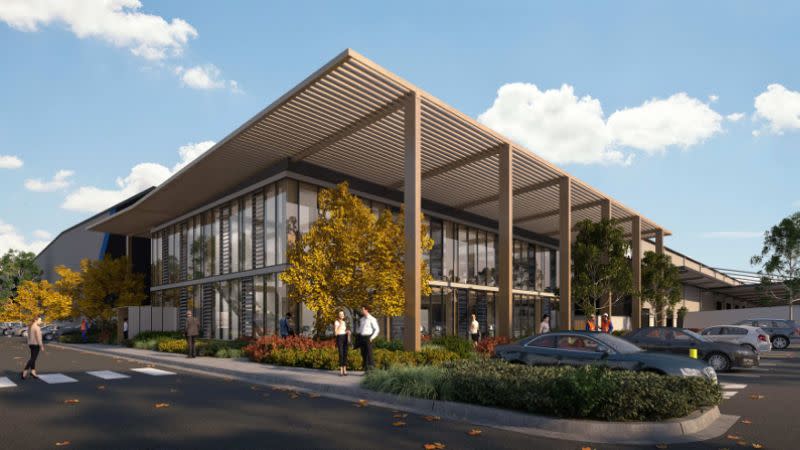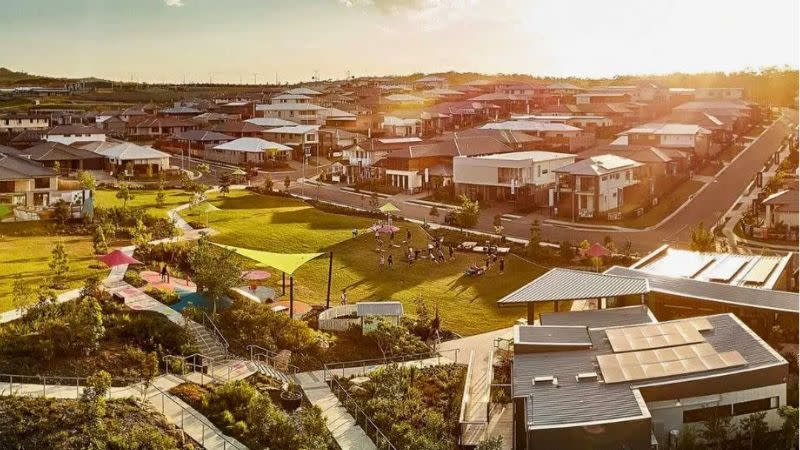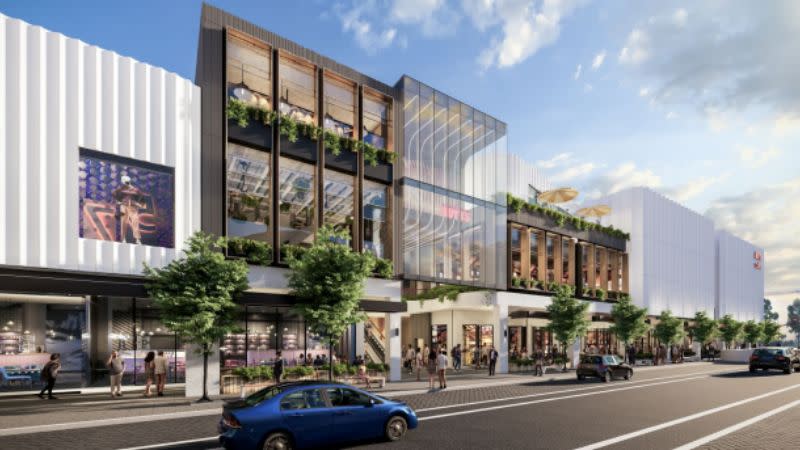Resources
Newsletter
Stay up to date and with the latest news, projects, deals and features.
Subscribe
It was a day of mixed fortunes for a number of Australia’s major development companies as have revealed their results as part of the half-year results season.
Charter Hall and Stockland have undertaken extensive portfolio reviews and revaluations as the fortunes of offices continue to hang in the balance, while others, such as Scentre Group, have benefitted from an uptick in consumer spending.
Developer and fund manager Charter Hall reported post tax operating earnings of $195.1 million and a statutory loss of $190 million for the half year to December, 2023.
In the comparable period in 2022, it made a $226.5-million profit, however it was hit by a share of net loss from equity accounted investments, which cost $223.8 million.
Its development costs bill, meanwhile, dropped from $111.5 million in the half year to December, 2022 to $2.4 million in the most recent six months.
Charter Hall Group revenue reached $311.4 million for the half year, down considerably on the comparable half year in 2022 when it reached $473.1 million.
Charter Hall’s group chief executive officer David Harrison said that the business had “continued the ongoing curation of the portfolios we manage, developing new assets and modernising prime located assets that meet the needs of today’s tenants, while selectively divesting older, non-core assets which enhances returns”.

Charter Hall directed attention to the $1.8-billion Chifley South tower, which has now commenced construction, after it was approved by the City of Sydney last year and the construction contract was awarded to Built.
Australian law firm Gilbert + Tobin will be joining international investment bank UBS and Charter Hall Group as future occupants, bringing the pre-commitment level in the building to more than 55 per cent.
Charter Hall said it had $3 billion of development completions across office and industrial over the past 12 months, including Australia Post’s 40,0002sq m offices at Swan Street, Melbounrne.
It reported that it has a current $12.8 billion pipeline with $5 billion committed development project value.
Portfolio occupancy remains healthy with a 97 per cent occupancy rate, and a weighted average lease expiry (WALE) of 7.3 years.
Residential, retail and land lease specialist Stockland reported statutory profit of $102 million in its first half of 2024, compared to $301 million in the comparable period for 2023.
Pre and post-tax funds from operations reached $266 million, compared with $353 million in the previous comparable period.
Managing director Tarun Gupta said that over the six-month period, the developer had “accelerated the execution of our strategic priorities and made meaningful progress in reshaping our portfolio.
“We announced a $1.06-billion acquisition of 12 high-quality, actively trading [masterplanned community] projects in partnership with Supalai, extending our residential and capital partnership platform while providing Stockland with attractive returns and new sources of recurring income,” he said.

“The acquisition represents a strategic restocking of our pipeline and increases our capital allocation to the residential sector, consistent with our focus on deploying capital towards our targeted growth sectors.
“We are seeing early signs of improvement in residential markets and are positioning our MPC and LLC business for increased production rates to meet demand in future periods.
“Our high-quality commercial property portfolio continues to deliver strong performance and we are focused on maximising income generation opportunities across our well-located logistics portfolio and pipeline.”
Stockland has a $1.9 billion ‘workplace’ portfolio “the majority of which is being positioned for future mixed use opportunities”, and the valuation of the portfolio declined by $79 million in the half-year.
Analyst at Moody’s Investor Service Mariano Ferreyra said that group earnings were weaker than expected, “reflecting a material skew to the second half of fiscal 2024 in communities settlements.”
Lower earnings, higher debt and interest expense driven by development spending, land acquisitions and higher cost of debt weakened Stockland’s credit metrics, he said, offset by a solid balance sheet and “excellent” liquidity.
Retail heavyweight Scentre Group, owners of Westfield, has reported a $174.9 million profit in its full-year results for 2023.
Its Funds from Operations were up 5.2 per cent year-on-year to $1.09 billion.
Scentre Group chief executive Elliott Rusanow said the company’s focus on creating “the places and experiences that more people choose to come to, more often and for longer, has delivered strong operating performance with Net Operating Income increasing by 8.8 per cent to $1.95 billion.”
“Customer visitation to our 42 Westfield destinations for the year was 512 million, up 32 million or 6.7 per cent on 2022.
“As a result, our business partners achieved $28.4 billion in sales, an increase of $1.7 billion or 6.4 per cent compared to 2022 and representing a record across our Westfield platform.”

Demand from business partners continued to be strong with occupancy increasing to 99.2 per cent at December 31, 2023 compared to 98.9 per cent for 2022.
During the year the group completed 3273 leasing deals which included 307 new brands to the portfolio.
On average, specialty rent escalations increased by 7.5 per cent and new lease spreads improved to +3.1 per cent.
The group collected $2.7 billion of gross rent during the year, an increase of $131 million compared to 2022 and equivalent to 103 per cent of gross rental billings for the period.
Senior analyst at Moody’s Investors Service Saranga Ranasinghe, said the results showed solid earnings growth.
“Scentre increased its occupancy levels during the period to 99.2 per cent and achieved positive leasing spreads, highlighting the strength of its portfolio of high-quality retail assets.
“The group also saw high single-digit rent escalations supported by favorable lease structures.
“Despite the moderation of the Australian retail environment with high interest rates softening consumer demand for discretionary retail, we expect the strong operating metrics and supportive lease structures to support earnings growth for the group over the next 12 to 18 months.”